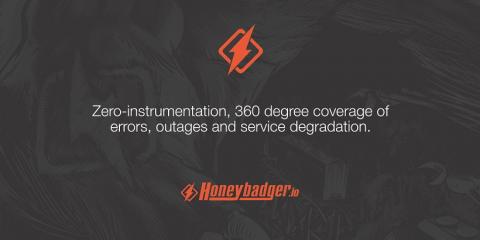Systems | Development | Analytics | API | Testing
Development
Announcing Worker Threads Monitoring for Node.js in N|Solid
NodeSource is very excited to announce the addition of Worker Threads support in N|Solid, it’s an amazing new feature for our customers on their journey with Node.js. Worker Threads are a very powerful feature in Node.js that allows developers to build more complex and robust applications.
Powerful Caching with Redis for Node.js Applications
Regardless of the tech stack used, many developers have already used Redis or, at least, heard of it. Redis is specifically known for providing distributed caching mechanisms for cluster-based applications. While this is true, it’s not its only purpose. Redis is a powerful and versatile in-memory database. Powerful because it is incredibly super fast. Versatile because it can handle caching, database-like features, session management, real-time analytics, event streaming, etc.
Non-Breaking Breakpoints: The Evolution Of Debugging
Since the beginning of time, back to before humans invented fire, there were two traditional ways to debug applications: one way -after having invented hieroglyphics, of course - was by reading log lines and the other was by using the common debuggers that surrounded a cave dev’s cave. It’s safe to say that society has progressed since then and, luckily, so too has traditional debugging.
Building Custom Servlets for C++ Microservices in Docker
In a previous post, C++ Microservices in Docker, we worked through the steps for creating a docker container that exposes a HydraExpress servlet container. We successfully deployed our HydraExpress server instance in Docker, however all that was available were the default example servlets. User application code wasn’t exposed. Let’s fix that and look at deploying custom C++ Servlet instances within the HydraExpress Docker container.
Comparing Top Container Software Options for 2021
Each day, more and more companies consider opting for cloud-based solutions, and they almost always end up adopting them to some extent. While the increasing popularity of cloud services may be a significant factor in accelerating the adoption rate of cloud-based solutions, some individuals remain skeptical of migrating their applications to the cloud due to unfamiliar territory.
8 Emerging Web Development Trends in 2021 and Beyond
What’s trending in web design and development? Like humans, technology also continues to evolve as we find new innovations, doing things faster and make them work flair than they did before. This increasing attention to responsive web design is partly because of the increased usability and the performance it brings to the users. Each year, developers are always discovering new technologies that can keep them in the competition.
Logging in Ruby with Logger and Lograge
Logging is tricky. You want logs to include enough detail to be useful, but not so much that you're drowning in noise - or violating regulations like GDPR. In this article, Diogo Souza introduces us to Ruby's logging system and the LogRage gem. He shows us how to create custom logs, output the logs in formats like JSON, and reduce the verbosity of default Rails logs.
How to Use Bugfender with a Vue.JS Application
It is an exciting era for web developers with so many open-source frameworks and libraries around to help them. Of all the frameworks that have emerged in recent years, Vue.js stands out for its simplicity, adaptability and rapid load times. In this article, we will learn how to get started with Vue.js. We will also go through the steps to integrate and use Bugfender with a Vue.js application. We will build a simple TODO application, which will enable us to add, fetch, edit, and delete TODO items.











